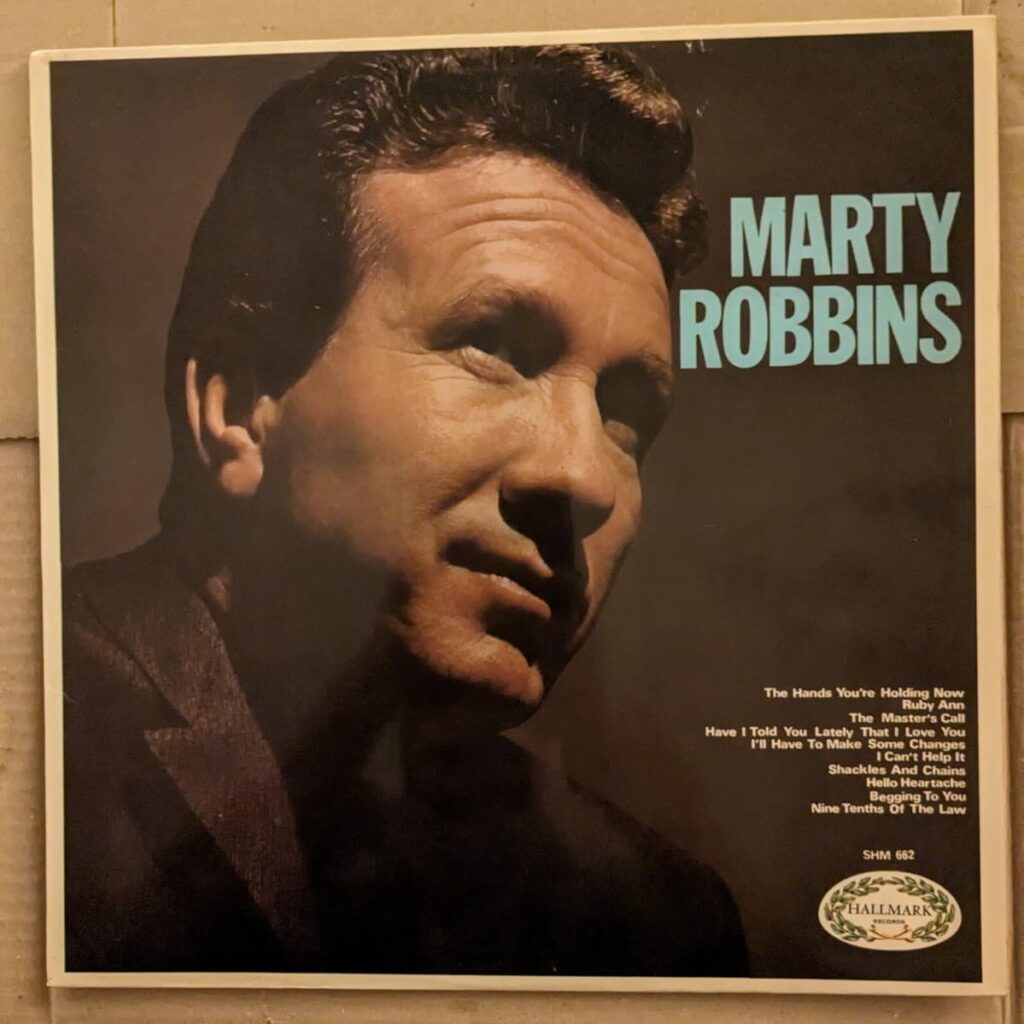
Marty Robbins – Song of the Bandit: A Lonesome Ballad That Rides the Fences Between Heroism and Heartbreak
There are few voices that could transport a listener straight to the dust and drama of the Old West quite like Marty Robbins. His passion for the cowboy and gunfighter narrative wasn’t just a passing musical phase; it was an integral part of his artistic soul. When you settle in to listen to a track like “Song of the Bandit,” you aren’t just hearing a record—you are opening a window to a time and a place that lives vividly in the American imagination, filled with lonesome trails, stoic heroes, and a lingering sense of melancholy.
This particular ballad is an essential, yet perhaps less-celebrated, piece from his iconic Western repertoire. “Song of the Bandit” was released on his superb 1960 album, More Gunfighter Ballads and Trail Songs. For those of us who cherish the Gunfighter Ballads series, this follow-up album—released the year after the monumental original—is a treasure trove of authentic, expertly rendered Western stories. While the track was never released as a commercial single and therefore did not register on the major country charts, its power lies not in its chart position, but in its deep, narrative resonance with the audience who understood and loved this specific genre.
The true weight of this song, and much of Marty Robbins’ best Western work, rests upon the shoulders of the songwriters. “Song of the Bandit” was penned by the legendary Bob Nolan, a towering figure in Western music and the founder of The Sons of the Pioneers. Nolan had an unparalleled gift for crafting lyrical landscapes that were both mythic and profoundly human. His story here is deceptively simple: it tells of a “bandit” who isn’t a heartless villain, but a man driven to a life outside the law by a deep, unrequited love for a beautiful maid.
The significance of the song lies in its exploration of a central Western theme: the tragic hero. The bandit is portrayed not as a figure of terror, but as a man of great sadness and devotion. The lyrics paint a picture of a soul who chooses a solitary, dangerous path, forever singing a “Song of the Bandit” on the lonely trail, his life a desperate echo of the love he cannot have. This is a story of sacrifice and lonesomeness, the kind of deeply felt poetry that only the best Western music can deliver.
For those of us who grew up listening to Marty Robbins spin these tales, this song is a potent reminder of the complexities of life and love. It’s a reflection on the choices we make and the roads we ride alone. His vocal performance, characteristically smooth and controlled, yet imbued with a profound sense of yearning, makes the bandit’s heartache tangible. It’s the kind of song you put on late at night, letting the sweeping strings and the gentle rhythm transport you back to a time when life felt harder, simpler, and the legends were just men with broken hearts and fast horses. It is a timeless piece of storytelling, wrapped up in the authentic, masterful sound that only Marty Robbins could deliver.
This track captures the very essence of why Marty Robbins remains so revered—he didn’t just sing songs, he preserved a piece of history and legend, passing down stories of the trails and the human heart that remain moving and relevant today.